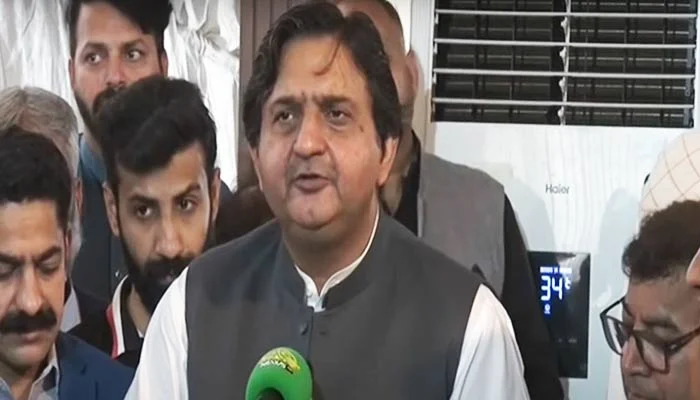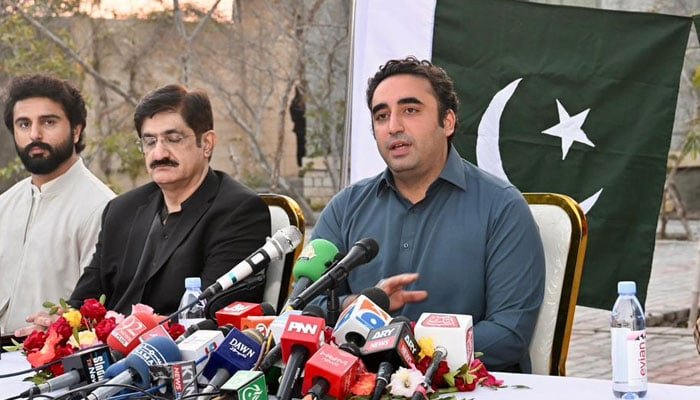In a bid to restore order and decorum to the Punjab Assembly, Speaker Malik Ahmed Khan has announced the formation of an ethics committee following a tumultuous session marred by disruptions and protests. The assembly, located in Pakistan’s largest province, has been grappling with increasing incidents of rowdy behavior and legislative obstruction, prompting the speaker to take decisive action against what he described as “troublemakers.”
The recent controversy erupted after Speaker Malik Ahmed Khan barred several lawmakers from attending 15 consecutive sessions for their alleged role in disrupting proceedings. This move came on the heels of a particularly chaotic session where opposition members vehemently protested during a speech by Chief Minister Maryam Nawaz. The disruptions, characterized by shouting and anti-government slogans, underscored growing tensions within the assembly.
“We are forming the ethics committee to improve the assembly’s environment. The body will work to maintain decorum,” declared Speaker Malik Ahmed Khan, underscoring his commitment to ensuring that legislative sessions proceed smoothly and responsibly.
Central to the speaker’s concerns is the erosion of parliamentary norms due to what he termed as “rowdyism” and the use of “unethical slogans.” He emphasized that such behavior would no longer be tolerated, asserting his authority to enforce discipline within the legislative chamber. Khan’s actions reflect a broader effort to uphold the integrity of parliamentary proceedings and to prevent further deterioration of the assembly’s environment.
The decision to bar lawmakers from attending sessions has sparked controversy and opposition outcry. Leader of the Opposition in the Punjab Assembly, Malik Ahmad Khan Bhachar, led protests outside the legislature, condemning the speaker’s actions as arbitrary and prejudiced. Bhachar argued that the opposition’s protest during the previous session did not warrant such severe penalties, questioning the legality and fairness of the speaker’s decision.
“Under which law were the lawmakers barred from attending the session?” Bhachar challenged, highlighting a fundamental concern about due process and procedural fairness in the assembly’s disciplinary actions. He accused the speaker of bias, alleging that the treasury benches were allowed to disrupt opposition members without consequence while punitive measures were swiftly imposed on dissenting voices.
The opposition’s boycott of the assembly session further escalated tensions, reflecting deepening divisions and unresolved grievances within Punjab’s political landscape. The standoff between government and opposition underscores broader challenges facing democratic governance in Pakistan, where parliamentary decorum and procedural fairness are increasingly under scrutiny.
Security measures outside the provincial legislature were heightened in response to the protests, underscoring the volatile atmosphere surrounding the assembly’s deliberations. The speaker’s assertion of authority and his determination to maintain order within the assembly signal a pivotal moment in Punjab’s political dynamics, where legislative conduct and ethical standards are hotly debated issues.
In response to criticisms, Speaker Malik Ahmed Khan reiterated his duty to uphold parliamentary standards and stressed the necessity of enforcing discipline to ensure effective legislative functioning. His stance resonates with calls for institutional integrity and responsible governance, although concerns persist about the potential misuse of authority and the stifling of dissenting voices.
As the ethics committee prepares to address these challenges, its role in promoting accountability and fostering a conducive legislative environment will be closely scrutinized. The committee’s mandate to oversee ethical conduct and procedural adherence reflects a commitment to institutional reforms aimed at bolstering public trust in the assembly’s deliberative processes.
The unfolding drama in the Punjab Assembly underscores broader implications for Pakistan’s democratic institutions, highlighting the delicate balance between legislative autonomy and executive oversight. The outcome of this internal strife will likely shape future legislative practices and governance dynamics in Punjab, influencing public perceptions of political leadership and democratic accountability.
The Punjab Assembly’s struggle with disruptions and ethical standards reflects deeper fissures within the province’s political landscape. Speaker Malik Ahmed Khan’s crackdown on rowdy behavior and his establishment of an ethics committee signify efforts to restore order and uphold parliamentary decorum. However, challenges remain in balancing legislative discipline with procedural fairness and ensuring inclusive governance that respects diverse viewpoints. The outcome of these deliberations will have far-reaching consequences for Punjab’s political stability and democratic governance in Pakistan.



